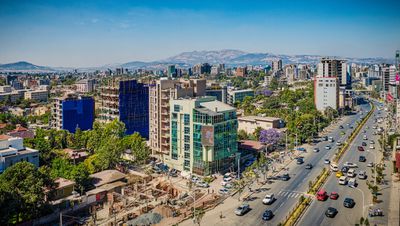A consortium led by Kenya’s Safaricom continues to celebrate the award of the second telco license in Ethiopia in May for a reported bid price of US$850 million. Given all that is taking place in Ethiopia at this time, it shall require a amount of skill and determination to make this greenfield operation profitable in a reasonable time-frame, with the investment case seemingly under significant pressure.

Pros
- Ethiopia has a large population, in excess of 100 million residents, with a mobile penetration rate around 50%. There is clearly room for expansion, and as a second entrant in the market there is massive potential for customers to churn from the incumbent on account of the pent-up excitement over the introduction of choice for first time in the telco market.
- Demand for broadband data in general and 3G and 4G services, is proving high and growing in Ethiopia, with analysts estimating that LTE and W-CDMA subscribers accounted for almost 24% of overall cellular users at the end of 2020, up 33% year-on-year.
Cons
Industry-specific
- The Ethiopian Communications Authority reserves the right to license a second operator at any point, after a proposed second new license offered during the current process was held back on account of not having received a high enough offer. The licensing and entry of an additional new entrant into the market in the short-term, at a cost-of-entry likely lower than the Safaricom bid, would impact the Kenya telco-led consortium’s presumptions and business case negatively given the increased competition.
- The ongoing process to part-privatise incumbent telco Ethio Telecom with the sale of a 40% stake in the operator means the Safaricom consortium will likely face a better funded, more professionally run operator that will likely benefit from the experience and synergies of the investing company. This development points to a more sophisticated nature of competition that may counter and retard the uptake of services offered by the new entrant.
- Safaricom will not be able to bring its colossal experience and success in the mobile money space (M-Pesa) from its home market of Kenya to bear in Ethiopia in the first instance, with the new entrant being barred by law from providing mobile financial services in Ethiopia. This while incumbent Ethio Telecom crows about the uptake of its own mobile money service, Telebirr, launched in May 2021, which has gone on to sign up approximately 4 million Ethiopians as of the end of June.
- While ARPU levels for Ethio Telecom in Egypt, and Safaricom in Kenya are broadly similar at less than USD2.50 per month, the start-up costs of the new entrant are set to weigh heavily on the Safaricom consortium’s financials, suggesting that operational profitability may be a long time in the making. Not least as the Ethiopian government expects the new player to invest as much as US$8.5 billion in CAPEX over the lifetime of the license.
External factors
- An armed crisis currently rages in Ethiopia in Tigray, while tensions with Sudan and Egypt may escalate further, impacting the economic landscape negatively and potentially reducing economic growth prospects.





0 comments ↓
There are no comments yet...Kick things off by filling out the form below.
Leave a Comment